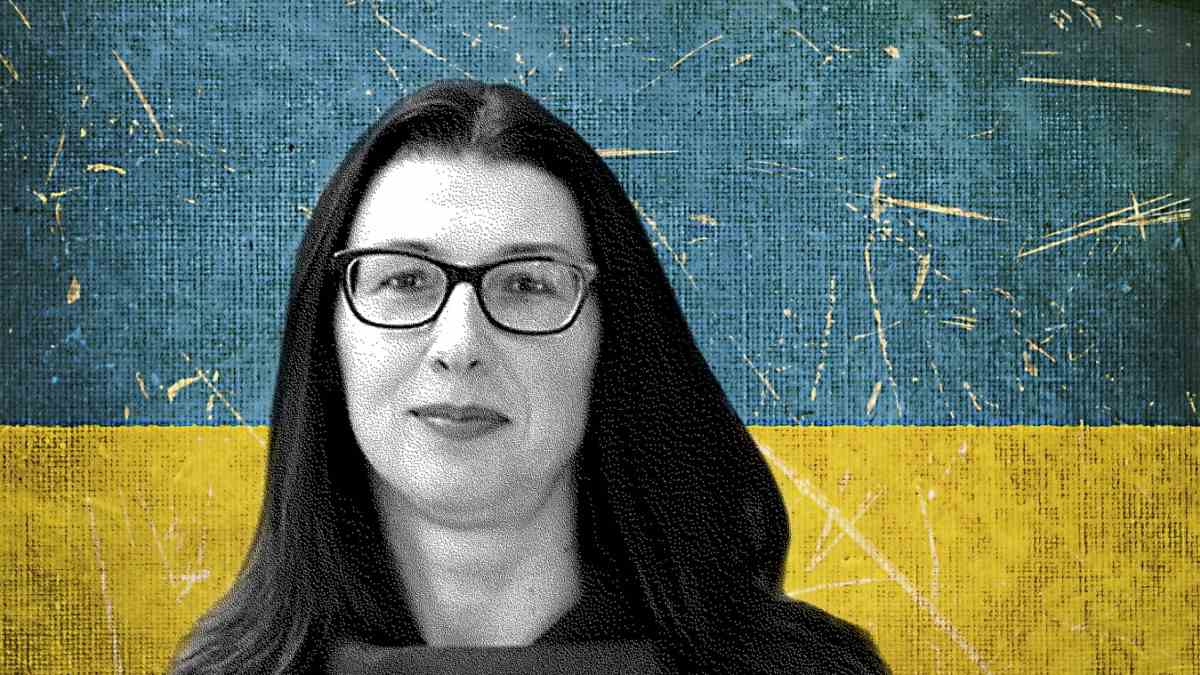My morning on Wednesday, May 11th starts early, at half past seven we want to start back to Romania. When I come into the kitchen, my I. from Mariupol is already there, she has to leave earlier, she leaves the house just before seven on weekdays. While we drink our morning tea, we chat briefly. Because our dog Bars, renamed Bayraktar (like the Turkish combat drone) since the beginning of the war, is barking outside, we come to the dog topic. I. says an employee of hers received a puppy yesterday as a present, she cannot remember the name of the breed. But an old man in Mariupol who lived nearby had one like that, he always took him for walks, slowly, the dog was old too, now and then they stopped and walked on. Then she is silent. I’m silent too. Maybe we’re thinking the same thing at the moment: Did this man with his dog manage to save himself?
I. must go, we wish each other a nice day. I’m following the story, which isn’t really a story, just an approach to it. Unbelievable what effect three sentences about a well-known person with an unknown dog can have; it feels like they’re breaking through the protective layer of brutalization and emotionlessness I’ve put on myself. As if the anesthetic that usually protects against pain would suddenly stop working, although I see and read far worse things every day. I sincerely wish they both made it. That this story has a reasonably happy ending. At the same time, I know that there are thousands of stories like this that don’t have a happy ending. That thousands of old and young people and their pets didn’t make it – from Mariupol, Kherson, Kharkiv, Izyum, Bilohorka, Popasna, Rubishne, Severodonetsk, Kramatorsk, Chernihiv, Trostyanets, Hostomel, Bucha, Irpin… That they lost the right to life was denied because a clique of megalomaniacs in the Kremlin imagined that they had to tell Ukraine how to live, think and speak. And if we are not willing to live according to the guidelines of this inhuman regime, then we belong to be destroyed. A final solutionexactly as Timofej Sergejzew describes them.
Not a single gas station on the way to the border sells fuel
It’s good that I don’t have much time to delve deeper into my thoughts. And that I’ll soon be back in our team of four in the pickup truck, talking to my colleagues in the usual ironic, matter-of-fact tone. Not a single gas station on the way to the border sells fuel. Neither diesel nor petrol. S. says a neighbor from his village had to queue for three hours for 10 liters. This is another reason why Romania is our salvation. The woman at the gas station asks if we are from Ukraine. When we answer in the affirmative, she shakes her head sympathetically. We can also fill in canisters. The aid supplies from the IKGS are waiting for us this time in the underground car park of a hotel. They were unloaded there early in the morning because the vehicle had to continue to Bosnia. Our car can’t get in, it’s too high, fortunately the hotel employee has a small trolley. Several boxes are very heavy: they contain children’s toys, children’s books and coloring books, soap bubbles and puzzles. A special kind of humanitarian aid, which was made possible for us thanks to the organization “Schüler Helfen Leben”. A few days ago, we also received another earmarked donation for children’s needs from “Bread and Books eV”, which was made possible thanks to the personal commitment of the writer Tanja Kinkel. In consultation with the association, we want to spend the money primarily in the rural communities where refugees with children live. In addition, there is the donation as “spiritual nourishment” from the author herself: we are now in possession of her complete works, which we are integrating into the library of the thought roof center.
On the way back we decide to buy groceries as there is still room in the car. Several types of preserves, croissants, pasta, tea and desserts are now being shipped to the Ukraine from Kaufland and Lidl. Again, I thank two ladies from Berlin, PS and DK for their generous amounts, which were transferred directly to my card. When we arrive in the student village, where the groceries are unloaded, it is already dark, some residents are sitting outside, it is a warm evening and there is still no curfew. Some help. A special helper also wants to be involved in the process, an eight or nine-year-old girl. “Sonja, they’re heavy boxes, not for you,” says her mother, who also lends a hand. It occurs to me that we do have something she could carry, namely the little boxes of tea. All four or five are then handed over to her by the driver. We’re done quickly, I ask Sonja which dessert she would like, vanilla or chocolate. “Vanilla”, says, “No, I’d rather have chocolate”. So the chocolate and thank you, dear Sonja.
Read more episodes of this column here.

